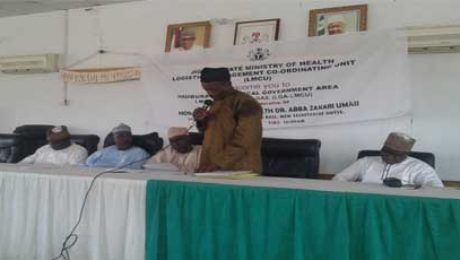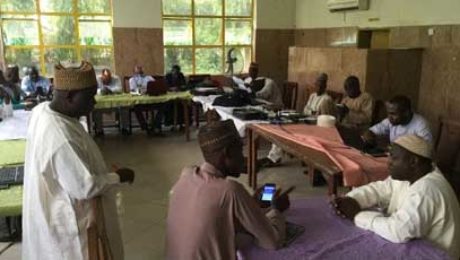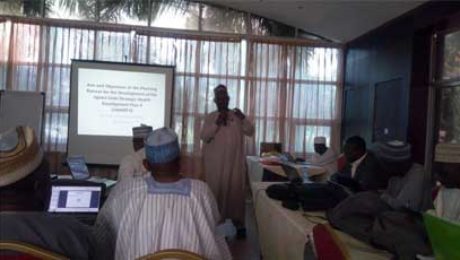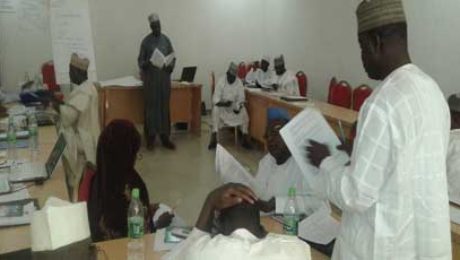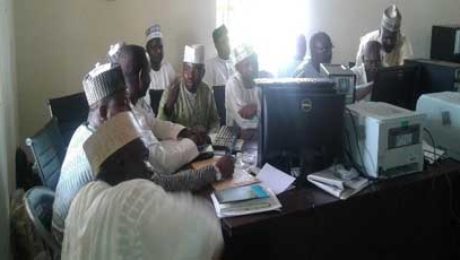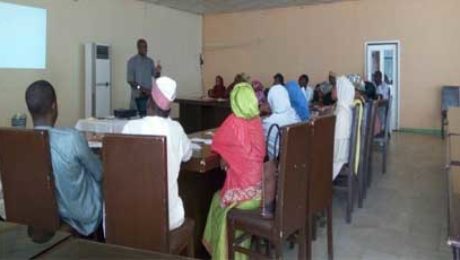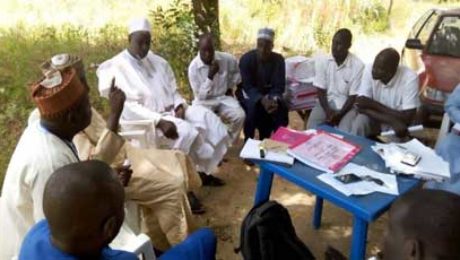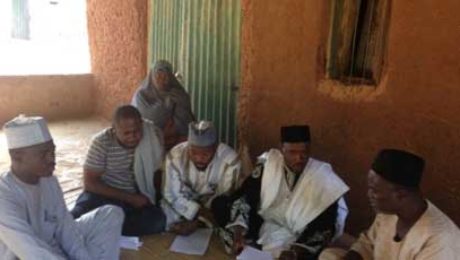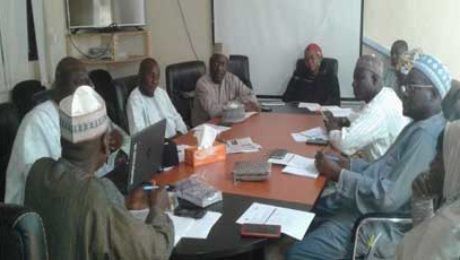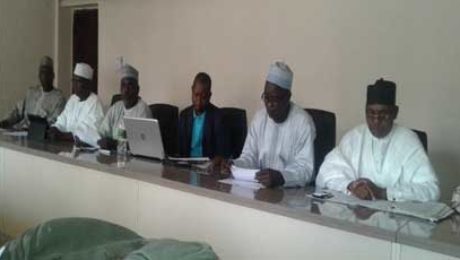MNCH2 supported the establishment, inauguration and capacity building of 28 LMCU committees at the state and LGA levels. Before the intervention of MNCH2 alongside other partners, leading to the establishment of LMCU, drugs and commodities coming into the state were poorly managed because of weak Logistics and Supply Chain Management Systems in the state. The
MNCH2 initiated and supported a shift from the use of paper-based to electronic tools for monitoring quality of care across supported facilities. The MNCH2 quality of care tool (QoCAT) was deployed in the CommCare software app, 27 LGA Monitoring and Evaluation Officers were trained and supplied with Android phones with the application installed to facilitate
MNCH2 supported the Jigawa State Government to review and develop a 5-year strategic plan, which will serve as the roadmap for achieving Universal Health Coverage (UHC) in Jigawa State. The SSHDP development process included measurement of current performance of the state health sector, review of financial capacities in line with the state budget and development
MNCH2 supported the state to re-activate PHCUOR in line with the National Primary Health Care Development Agency (NPHCDA) Policy. The programme also supported the State Ministry of Health to transition from the Gunduma health system to a State Primary Health Care Development Agency with establishment and development of Organizational Capacity Development Plans for LGA Primary
MNCH2 supported procurement of mSupply software, starting with the installation of the relevant hardware in April 2016 and then training of State Ministry of Health (SMoH) and Jigawa Medicare Supply Organisation (JIMSO) staff on 10th of May 2016. mSupply has helped inventory management at the State Central Medical Store and regional warehouses, facilitating efficient and
The state MPDSR Steering Committee was inaugurated in August 2015. In addition to the 12 secondary health facility committees, 10 MPDSR committees were inaugurated in April 2017 at the primary health care level. These efforts have improved the tracking of maternal deaths and responses at both service delivery points and at the policy level.
These efforts in Jigawa have ensured effective articulation and coordination of inputs from various data sources to produce relevant, timely, up-to-date and uniform health data. Since March 2015, they have also promoted inter-departmental and inter-agency cooperation and collaboration in data-related matters under the leadership of the Director Policy, Planning and Resource Mobilization at the State
MNCH2 re-activated the Jigawa Operational Research Advisory Committee (ORAC) and developed a database for capturing all submitted protocols and approved studies. The Research Advisory Committee process has sustained improvements in the institutional environment for operational research in Jigawa State, as well as creating a solid platform for increasing and improving evidence-based data to inform the
MNCH2 supported the re-activation of Jigawa State-Led Accountability Mechanism (SLAM) – Jigawa MNCH Accountability Forum (JiMAF), a platform established to track the government budgeting and implementation process with a view to entrenching accountability in governance. JiMAF comprises of representatives from civil society organisations, media, development partners and the public-sector. The platform has made great efforts
The Logistics Management Coordination Unit (LMCU), under the State Ministry of Health was established and inaugurated in May 2014. MNCH2 supported the re-invigoration of the unit in 2016 by supporting quarterly meetings of the logistics technical working group (TWG) / LMCU, and inauguration and training of 27 LGA LMCU committee members in October 2017. On


